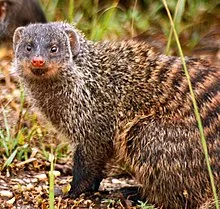

Animals, particularly pets, play a significant role in the lives of many Nigerians, whether for companionship, economic benefits, or cultural practices. While they bring numerous advantages, there are also challenges associated with keeping them. This article examines the benefits and drawbacks of animals and pets in Nigeria.
Advantages of Animals and Pets in Nigeria
1. Companionship and Emotional Support
Pets such as dogs and cats provide emotional comfort and companionship to their owners. In Nigeria’s fast-paced cities, pets can help alleviate stress, reduce loneliness, and improve mental health.
2. Security
Dogs, especially, are commonly kept as guard animals. Breeds like Rottweilers and local dogs such as the Ekuke are trained to protect homes, businesses, and farms from intruders.
3. Economic Benefits
Animals like goats, chickens, cows, and pigs contribute to Nigeria’s economy by providing food, raw materials, and income for farmers. The sale of animal products such as meat, milk, eggs, and hides supports many livelihoods.
4. Cultural and Traditional Roles
Animals are integral to traditional ceremonies in Nigeria. For example, cows and goats are used for feasts during weddings, funerals, and religious festivals. They symbolize wealth and status in some cultures.
5. Educational and Therapeutic Benefits
Exposure to pets teaches children responsibility, empathy, and care for other living beings. Additionally, animal-assisted therapy is gaining recognition in Nigeria for aiding individuals with disabilities or trauma.
6. Environmental Benefits
Certain animals, like poultry and goats, contribute to sustainable agriculture by providing natural manure, which improves soil fertility.—
Disadvantages of Animals and Pets in Nigeria
1. Cost of Maintenance
Feeding, healthcare, and grooming pets or farm animals can be expensive, particularly in urban areas where resources may be limited. Veterinary services are often costly and not readily accessible in rural regions.
2. Health Risks
Animals can carry diseases like rabies, bird flu, and zoonotic infections, which can affect humans. Inadequate vaccination and improper handling of animals increase these risks.
3. Environmental Concerns
Overgrazing by livestock can lead to land degradation, deforestation, and soil erosion. Similarly, the waste from animals, if not managed properly, can contribute to pollution.
4. Animal Abuse and Neglect
Due to economic challenges or ignorance, some animals suffer from poor living conditions, inadequate food, and lack of medical attention. Stray animals, especially dogs, are common in Nigerian cities.
5. Noise and Disturbance
Pets and farm animals can create noise that disturbs neighbors, especially in densely populated areas. Roosters crowing early in the morning or barking dogs can be a nuisance.
6. Cultural and Religious Conflicts
Some Nigerians have cultural or religious reservations about keeping certain animals. For instance, certain communities may view dogs as unclean, limiting their acceptance as pets.—
Conclusion
Animals and pets bring numerous benefits to Nigerian households and the economy, from emotional support to economic gains. However, their care requires significant responsibility and resources. Addressing challenges such as veterinary care accessibility, proper education on animal welfare, and sustainable farming practices will ensure that Nigerians continue to reap the advantages of living with animals while mitigating the disadvantages.